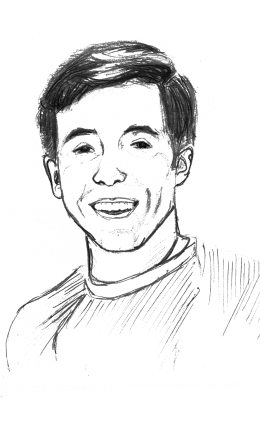 For the past few weeks, Lance Armstrong has been mercilessly bashed upon the unforgiving rocks of the American media for his use of performance-enhancing drugs. He has been the subject of betrayal from friends, enemies and teammates alike. He has been the target of heated vitriol from talking heads, sportscasters and daily-show hosts.
For the past few weeks, Lance Armstrong has been mercilessly bashed upon the unforgiving rocks of the American media for his use of performance-enhancing drugs. He has been the subject of betrayal from friends, enemies and teammates alike. He has been the target of heated vitriol from talking heads, sportscasters and daily-show hosts.
Unfortunately, much of the world’s attention is diverted from the real triumph and story of Armstrong — the real reason he captured the hearts and minds of millions of people across the world. It is not just that he was the fastest human cyclist in the history of mankind — for seven consecutive years. The reason people love Armstrong is because he has stood and shall continue to stand as a representation of the power of hope and determination in the face of insurmountable challenges and unbeatable odds.
For me, Lance Armstrong is about more than just the championships he has won. His story resonates personally.
Three weeks before freshman year began, I underwent a routine physical checkup. A week later, I was formally diagnosed with cancer. Just days before my first day of college, I underwent surgery to remove a tumor that had been growing undetected for years. By the talent of Columbia Presbyterian Hospital’s surgical teams, more than a bit of grace and a lot of luck, I began college on time. Freshman year, under any circumstance, is a time of uncertainty and adaptation; on top of that, I had to worry about having cancer. Throughout my first semester, I made routine trips to my doctors in New York City. I left school a week before Thanksgiving break to undergo radiation therapy. I didn’t know what to make of my new home, of my new life, of my diagnosis. I was scared.
The symbol of Lance Armstrong proved to me that it was possible to make it through my treatment and make the best of it. Compared to Armstrong’s story, mine was tame. Though I found freshman year difficult to adapt to as an ongoing cancer patient, I was never inches from death. I never underwent endless rounds of chemotherapy or endured multiple surgeries. I wasn’t given less than a 40 percent chance of living. Armstrong endured all of those and more.
Armstrong’s incredible determination and perseverance, supported by his quick wit, sense of humor, optimistic attitude and the support of his loving and beautiful family showed the world just what a man is capable of performing. He indeed beat the odds, going on to win seven consecutive Tour de France titles.
I simply found it hard enough to begin freshman year as a cancer patient. Lance made history.
I do not wish to condone the use of performance enhancing drugs at all, but Armstrong’s case is demonstrative of the underlying culture of doping in cycling: His sponsors, friends and even the cycling leagues reaped enormous profits at the expense of fostering a culture of doping throughout the sport at large. I am disappointed, certainly, to know that his success came partly because of drug use. However, Armstrong’s legacy transcends his contributions to athletics.
The public crucifixion of Armstrong by people who have little qualification to do so or even an inkling of firsthand comprehension of what he endured is nothing short of disgraceful. He has been treated as nothing but a common criminal, a fallen athlete to be relegated to the same place in history as Barry Bonds, Marion Jones or Jose Canseco. Certainly, he committed wrongs to which he very publicly admitted. But the sharp vitriol ignores the reason why Armstrong is so incredible and shall remain an admirable human.
To somehow tie this incredibly determined and generous man simply to his athletic accomplishments is to demean what Armstrong means to millions of cancer survivors across the world. To question his devotion to the sport, his courage in the face of death or his commitment to the cancer survivor community is to debase all that it is to be a survivor.
Despite these revelations of doping, Armstrong remains and shall continue to remain a hero in my eyes.
For me, the legacy of Lance Armstrong is not about the bike. It’s about a remarkable man who beat impossible odds, who came back from teetering on the brink of death and defeat, who proved to millions what could happen with hardened determination, a full heart and an unshakable foundation of hope.
David Weis is a junior in the College. FROM THE OUTSIDE appears every other Friday.













